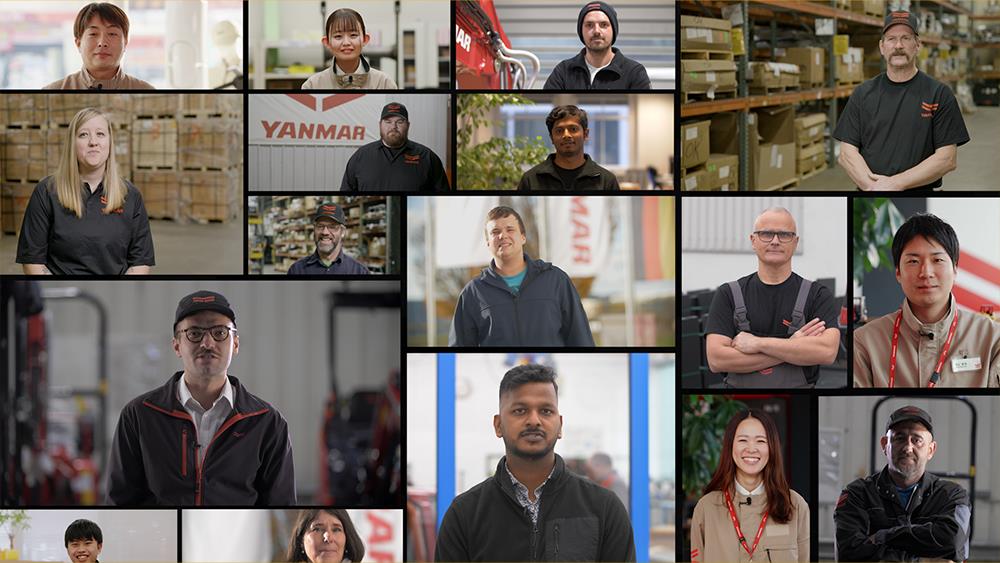

Elsie De Nys, Global Director of Brand and CSR at Yanmar Compact Equipment, explains why difference – not sameness – builds stronger companies, cultures and outcomes.
In construction, engineering, and industrial sectors, innovation depends on diversity. But inclusive workplaces don’t just happen by default – they?require focused action, cultural awareness, and consistent leadership.
“Innovation comes from people seeing the world differently,” says Elsie De Nys, Global Director of Brand and CSR at Yanmar Compact Equipment (Yanmar CE). “You need a mix of experiences and perspectives to solve complex challenges and keep pace with change.”
Operating in 70 countries with a multilingual workforce, Yanmar CE draws on its Japanese heritage while advancing global progress – including in Diversity and Inclusion (D&I).
Culture as a catalyst
Elsie leads Yanmar CE’s Corporate Social Responsibility (CSR) efforts, structured around three ESG pillars: Environment, Social and Governance.
At the heart of this is Hanasaka – a Japanese philosophy meaning ‘let the people bloom’. It’s about creating environments where individuals feel empowered to realise their potential, and where difference is seen as a strength. “Inclusion breaks down when people feel pressure to conform,” says De Nys. “We want our teams confident in what makes them unique.”
She offers a simple analogy: “Diversity is inviting people to the table. Inclusion is giving everyone a chance to speak. Equity is making sure each person feels safe and supported to raise their voice – because not everyone starts from the same place.”
One small initiative is weekly ‘coffee chats’ – informal video calls between colleagues in different regions and roles. “It began with one colleague in Japan wanting to practise English,” says De Nys. “Now, it’s helping people connect across borders in a relaxed, human way.
Brand and CSR, in sync
What sets Yanmar CE apart is how brand and CSR work together – not as separate functions, but as one aligned approach. “When brand and CSR move in sync, our values show up in everything we do,” De Nys explains. “It builds stronger trust with employees, customers and stakeholders alike.”
Running the two together turns social responsibility from a side activity into a core part of company identity, making the impact more meaningful and sustainable. This synergy helps the brand stand out in a crowded market by demonstrating a real commitment to purpose, not just profit.
Group-wide commitment to sustainability
Yanmar CE’s strong focus on D&I is part of a group-wide commitment led by Yanmar Holdings Chief Sustainability Officer Mariko Shirafuji: “The spirit of Hanasaka will guide us in making this future a reality,” she said in a recent message. “Across every business unit, teams are combining technologies and human insight to support prosperity for both nature and humanity.”
Yanmar CE recognises that D&I develops differently around the world. In places like North America, inclusion is more established, and women often move into leadership roles more readily – though there is still significant ground to cover. In others, including Japan, change is happening more gradually. “You can’t copy and paste culture,” De Nys notes. “But you can equip every region to grow through mentoring, training, storytelling and shared platforms.”
One example is Mentorise, a global D&I mentoring programme connecting close to 30 mentor–mentee pairs across departments and regions, encouraging learning and visibility. The program is open to all employees across different departments and geographies. De Nys sees it as an example of Yanmar’s “Culture Hacks” – small, human actions that create meaningful change.
“When individuals see leaders like them, it expands what feels possible,” she explains. “You don’t just imagine the future – you can see it.”
This inclusive mindset also extends to customers. A diverse internal culture helps Yanmar CE better understand and serve a global audience:?“As a customer-centric business, we shape solutions around real needs and real voices – grounded in collaboration, empathy and understanding. And ultimately, our customers tell us how we’re doing – through trust, loyalty, and tools like Net Promoter Score.”?
While surveys and data show trends, De Nys believes inclusion is built through daily behaviours: “Who we listen to, who we promote, who feels safe to speak.”
A persistent gap, however, is the underrepresentation of women in technical and engineering roles. Too often, women are steered toward historically accepted paths like HR, comms or admin – while STEM (Science, Technology, Engineering, and Mathematics) roles remain out of reach. “We need them in every room,” De Nys urges. “Especially in engineering, where different perspectives can genuinely reshape the future.”
Her message to industry leaders is clear: “Create space for people to grow. Make room for different voices at the table. And keep listening. Difference isn’t a risk – it’s where innovation begins.”